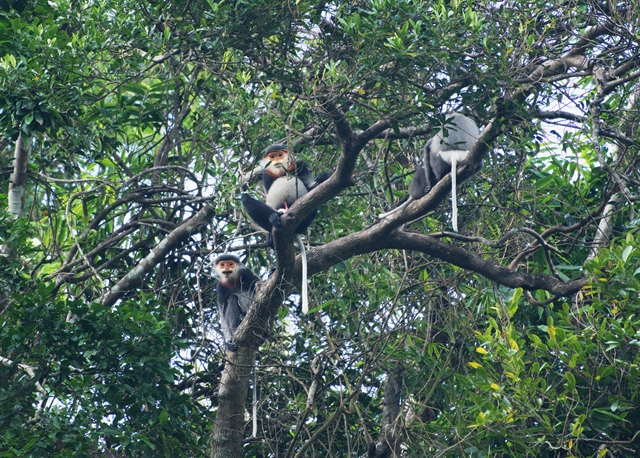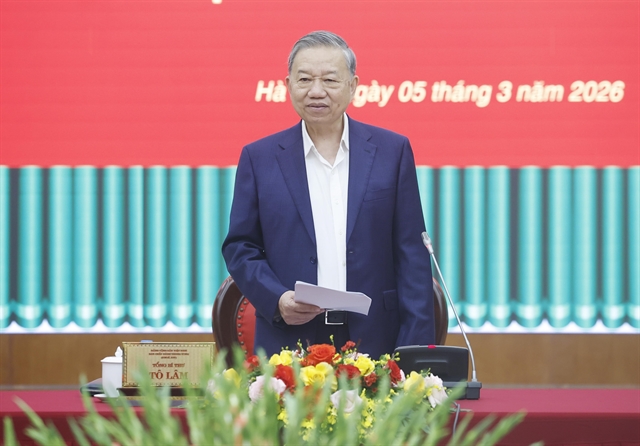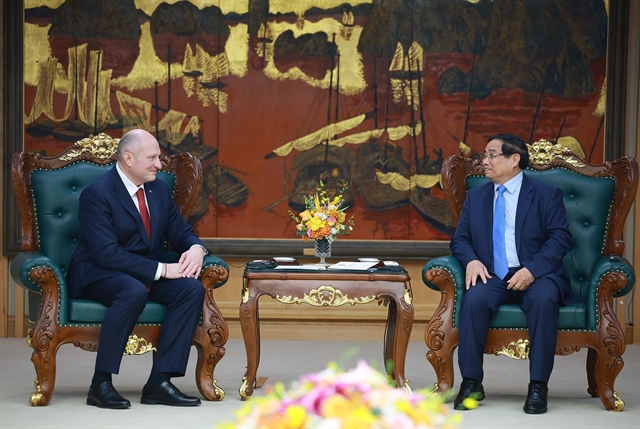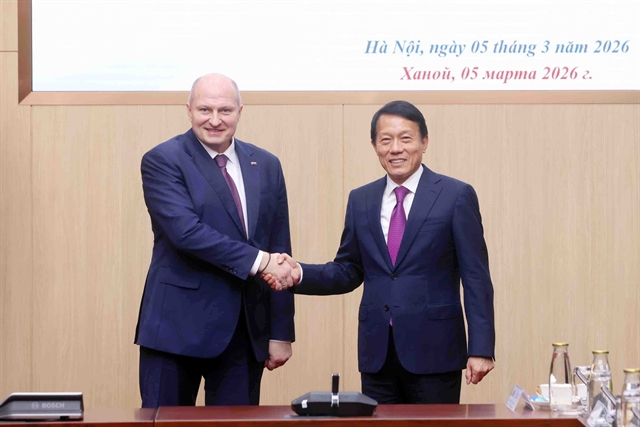 Environment
Environment


|
| Plastic pollution in a Vietnamese coastal area. Photo courtesy of Nguyễn Việt Hùng |
HÀ NỘI The way we design, produce, transform, use and dispose of plastic needs rethinking due to the vast release of the plastic waste into the ocean, and innovative circular economy approaches could be one way to go, experts have said.
International Union for Conservation of Nature (IUCN) acting country representative Jake Brunner raised the importance of plastic waste management for all countries, particularly high contributors to marine plastic pollution at a recent workshop themed 'National Guidance for Plastic Pollution Hotspotting and Shaping Action' in Hà Nội.
He said the recent issuance of a national action plan on plastic waste management is an important stride for Việt Nam with a focus on national guidance for identifying plastic pollution hotspots and working out solutions.
However, he noted, challenges are still ahead since plastic pollution is a problem relating to production, consumption and waste management that needs to be addressed thoroughly and tackled upstream.
The workshop was organised by the IUCN and the French Institute of Research for Development (IRD) with financial support from the Swedish International Development Co-operation Agency (SIDA) through the marine plastics and coastal communities initiative (MARPLASTICCs) and a project creating an observatory for measuring plastic occurrences in society and environment (COMPOSE).
IRD representative in Việt Nam, Alexis Drogoul, said the COMPOSE project looks to form a network for monitoring the movement of plastic in society and the environment in the country, helping authorities understand the movement and make policies to minimise the amount of plastic discharged.
Drogoul compared plastic pollution to a disease hitting the environment and society that needed to be cured.
He introduced the COMPOSE project on plastic pollution, collection and recycling in the Sài Gòn River and Hà Nội as increasing efforts to highlight the lack of interdisciplinary research on subjects that contributed to a lack of reliable and accessible data and scientific knowledge that can help the Government design appropriate policies.
"By combining scientific research, capacity building and awareness raising, the objective of the project is to obtain an accurate and continuous measurement of plastic pollution in Việt Nam. Its purpose is to improve the generation and dissemination of scientific knowledge in order to inform citizens and Government on the scale of and risks associated with plastic pollution," he said.
At the workshop, IUCN presented a methodology to determine plastic pollution hotpots, validate initial results of data on plastic pollution and identify data gaps and sources.
From 2019-20, it will be under critical review and pilot in Cyprus, Kenya, Mauritius, Menorca (Spain), Mozambique, Sao Paulo (Brazil), South Africa, Thailand and Việt Nam.
It will publish revised guidance, modules and tools for implementation by late 2020.
Three elements of this methodological framework for supporting countries such as Việt Nam include identifying key hotspots, prioritising areas of intervention and converging instruments to implement interventions.
The IUCN report says various actions can be undertaken to reduce plastic pollution and the aim of this guidance is to assist Việt Nam in prioritising these actions.
Nguyễn Thành Lam, a representative from the Việt Nam Environment Administration, said the methodology of defining a pollution hotspot was very important.
However, it should also focus on identifying the quantity of pollution and key locations, he said.
Lam highlighted support from international organisations and researchers in improving the environmental situation in Việt Nam and expected to see more solutions for the issue.
“We have talked much and much about marine plastic waste and the movement to cope with it is now climaxing with the participation of all sectors. What we need now is more effective solutions and actions. In addition to the support from mass media and management authorities, we need to take in account more technological and economic measures,” said Lam.
The official admitted Việt Nam is facing challenges in coping with plastic waste treatment and management while achieving initial results in collection at local levels.
Many waste treatment plants were operating ineffectively due to weak management and low investment, according to the official.
Lam revealed about 61,000 tonnes of solid waste were released every day to the environment.
About 85 per cent of it was collected in urban areas while only 40-55 per cent in rural areas, Lam said, adding that the average stood at 20-25 per cent in some rural localities.
As part of the MARPLASTICCs project implemented in Kenya, Mozambique, South Africa, Thailand and Việt Nam, the IUCN will provide financial support of up to US$50,000 in each target country for 12 months. VNS




